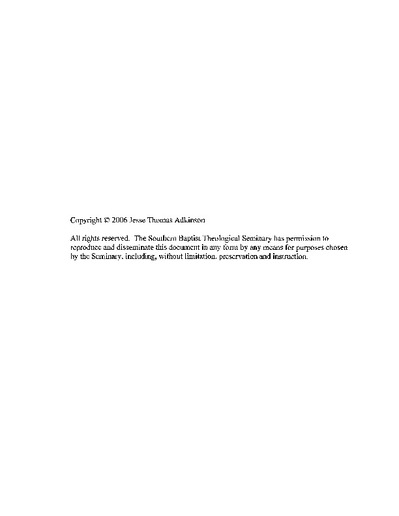| dc.description.abstract | This study examined the extent to which organizational conditions that promote ministry team effectiveness are present in multi-staff churches. The case was made for the need for effective teamwork in the church organization. Five influential and contemporary models of effective teams were examined and through those models a shift in thinking from examining team characteristics toward creating and leading organizational conditions was presented. Finally an integrative effective team model was presented and five key organizational conditions were presented as a synthesis of the components from the five effective team models. Those five organizational conditions are: an environment of trust, a focus on performance, team stability over time, a supportive structure and context, and good team leadership.
Based on the five organizational conditions the Team Effectiveness Survey was developed with the assistance of an expert panel. The survey, which examined perceptions of organizational conditions, was distributed electronically to 1165 multi-staff churches. The results collected allowed for the comparison of responses between senior pastors and associate staff. Data collected showed a positive perception among pastoral staff as to both the effectiveness of ministry teams and the presence of the five organizational conditions within their churches. Statistical analysis also displayed agreement in perception between senior pastors and associate staff in each of the five organizational conditions. Two conditions, however, did show a slight divergence in perception. Those conditions were the areas of trust and a focus on performance. Analysis of the data was accomplished primarily through descriptive statistics and was displayed through the use of tables and charts.
Implications and applications of the research were also presented. Some of the research implications involved the primarily positive views of pastoral staff regarding how their organizations support ministry team effectiveness, the reality that there is room for improvement in helping teams be more successful, and the agreement that senior pastors and associate staff had regarding team effectiveness and the existence of the five conditions. Research applications were suggested in the areas of continued communication among pastoral staff, the need to continue to improve in setting goals and objectives for tasks, and the need for leaders to shift their thinking from influencing individual team effectiveness to influencing the culture of an organization in order to promote team health throughout the organization. Finally, suggestions for further research were proposed. | en_US |

